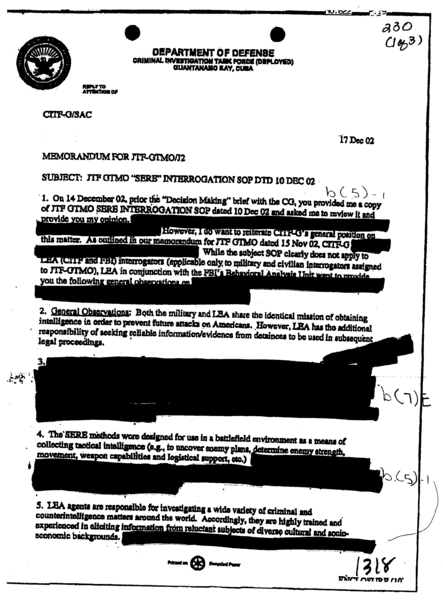What is FOIA, why is it important and when would I use this right?
The Freedom of Information Act (FOIA) is “a law that gives you the right to access information from the federal government. It is often described as the law that keeps citizens in the know about their government.”
The law was enacted in 1966, and it was the first to give Americans the right to access federal records. In the wake of the Watergate scandal in 1974, Congress passed amendments to strengthen FOIA. There have been a number of other amendments to the act throughout the years under various administrations. You can see a more detailed legislative history of FOIA on the Justice Department’s website here.
FOIA is an essential tool for the public to be able to hold government accountable. As the White House Press Office writes:
“A democracy requires accountability, and accountability requires transparency. As Justice Louis Brandeis wrote, ‘sunlight is said to be the best of disinfectants.’ In our democracy, the Freedom of Information Act (FOIA), which encourages accountability through transparency, is the most prominent expression of a profound national commitment to ensuring an open Government. At the heart of that commitment is the idea that accountability is in the interest of the Government and the citizenry alike.”
You may have heard about FOIA in recent news. In 2015, conservative group Citizens United filed a FOIA lawsuit, demanding “documents from Mrs. Clinton’s tenure as secretary of state related to the Clinton Foundation and to the 2012 terrorist attack on the U.S. diplomatic outpost in Benghazi, Libya.”
As Kimberly Strassel remarks in the cited Wall Street Journal article, under FOIA, government agencies have to provide plaintiffs with a complete list of all the documents that relate to the FOIA request that said agency is withholding. For example, in the case of the Citizens United lawsuit, the State Department withheld email chains from Clinton’s tenure relating to the Clinton Foundation. Strassel stresses how important FOIA is in providing transparency is in such political cases: “All told, there are at least 35 FOIA lawsuits pending for Clinton-related email. Nearly everything important we’ve learned has come from those suits.”
Who Can File a FOIA?
Although FOIA requests are perhaps most commonly filed by investigative reporters, any U.S. citizen (or foreign national) can use the act to request information from government agencies. Requests can also be filed on behalf of organizations or corporations.
How to File a FOIA Request
Special thanks to investigative journalist and FOIA expert C.J. Ciaramella for providing us with detailed information and tips on FOIA requests, which have been adapted for this post.
Look Through Public Records First
Filing a FOIA request can be time-consuming, difficult, and costly. Often, it takes a long time to get a response, and any documents you do receive may be so heavily redacted that you will gain no information to pay off all the effort you put into filing! So before you attempt to FOIA, see if you can uncover the information through publicly available records. Good resources to look through are:
- FEC filings: http://www.fec.gov
- Open Secrets: http://www.opensecrets.org
- PACER: http://pacer.login.uscourts.gov
- FBO: http://www.fbo.gov
- The Federal Register: http://www.federalregister.gov
- Sunlight Foundation: http://sunlightfoundation.com
- FBI Uniform Crime Reports
Non-Publicly Available Records: Filing a FOIA
You can ask a government agency to hand over records voluntarily, and sometimes they will. More often, you will have to file a Freedom of Information Act request.
Getting Started: 3 essential questions for FOIA requests
- What records do I want, specifically? You will need timeframes, keywords, titles.
- Are the records I want exempt? – There are nine general exemptions to the federal FOIA, including national security, trade secrets, and “pre-decisional” communications. The White House and Congress are largely exempt from FOIA. State laws vary.
- Who has them? Look for an Information Act page on the website, or call and ask who handles requests.
Keep In Mind
When a private entity (or even a public one normally exempt from FOIA) interacts with a government agency and leaves a paper trail, those documents can be subject to public records requests. That includes:
- Private citizens
- Law enforcement records, complaints (e.g. Amtrak, Chipotle, Trump University, etc.)
- Journalists
- FOIA logs and communications with public affairs
- Advocacy groups, non-profits, private contractors, etc.
- Communications, applications, contracts, audits, etc.
Resources for Filing FOIA Requests
These sites can help walk you through the process of filing a FOIA request and track your filed requests.
- Reporters Committee for Freedom of the Press (especially “Making a Formal Request: A Simple Letter Is All You Need“)
- Student Press Law Center
- MuckRock
- FOIAMapper
Remember, if your initial FOIA request is denied, you have the right to appeal! See Reporters Committee for Freedom of the Press (RCFP), Appealing an Initial Denial. Also keep in mind that “Members of the news media have no more and no fewer rights to information under FOIA than other requesters” – so don’t be intimidated or think that you have to be a superstar reporter to file a request! Try drafting a practice request, or explore the CIA’s Freedom of Information Act Electronic Reading Room, where you can browse through all kinds of documents released through the FOIA and other CIA release programs, on everything from UFOs to the Bay of Pigs invasion.
Through FOIA, you can exercise your right to holding our government accountable through transparency.
